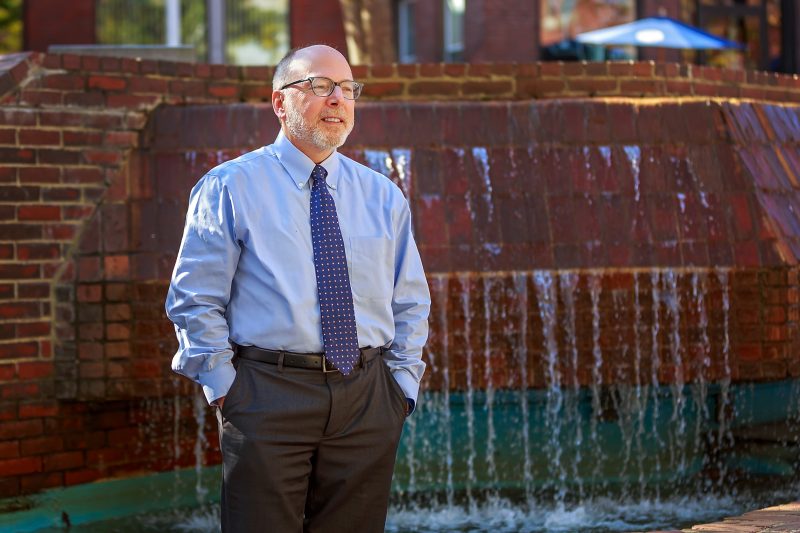By GARRY RAYNO, InDepthNH.org
CONCORD — Some members of the Executive Council have asked Gov. Chris Sununu for more information about his plans for responding to the COVID-19 epidemic.
The Executive Council is scheduled to meet May 6 and will be asked to approve warrants seeking to withdraw several hundred millions of dollars from the state treasury.
District 2 Executive Councilor Andru Volinsky, D-Concord, and a Democratic gubernatorial candidate, wrote to Sununu Monday noting the council’s advice and consent is required under Part 2 Article 56 of the state Constitution to withdraw the money.
“I ask that your office provide the Council with a description by amount and category of the sources of the funds to be withdrawn from the Treasury (i.e., general funds, CARES Act, other) and how the state intends to spend the money,” Volinsky wrote.
If the written warrant is sufficiently detailed, that would be adequate, he said, but if not, he would like the director of the Governor’s Office for Emergency Relief and Recovery, Jerry Little, to provide the council a summary of the intended spending and the source of the funds.
Sununu communications director Benjamin Vihstadt said the governor has been very transparent and will continue to be.
“Governor Sununu has been very transparent so far and intends to provide as much descriptive information as possible in a timely manner to members of the Executive Council,” Vihstadt said.
District 5 Executive Councilor Debora Pignatelli, D-Nahsua, also wrote the governor saying she assumes the governor will present his plans for distributing the federal money to the council for a vote.
“I believe it is very important that elected officials have a say and a vote in the distribution of these monies,” Pignatelli said in her letter to Sununu. “As you know, our State Constitution requires that any spending of public monies be approved by the Executive Council.”
The governor believes a 2002 law passed after the September 11 terrorists attacks gives governors authority during a state of emergency to bypass the usual process of accepting federal funds and spending unappropriated money to protect the public’s health and safety.
The usual process would have the Joint Legislative Fiscal Committee vote to accept new federal funds and to approve their use and then the Executive Council would vote to approve the contracts.
Democratic legislative leaders sued Sununu earlier this month seeking an injunction to block spending without fiscal committee approval, but a superior court judge ruled they lacked standing to sue because no actual harm has been done.
At issue is more than $1.25 billion in federal CARES Act and other money Congress approved to combat the coronavirus pandemic, help those affected, and to limit the economic downturn resulting from business closings and stay-at-home orders.
Both Pignatelli and Volinsky said they do not want to delay the distribution of aid to those in need. And they stressed the council can meet anytime on short notice in order to approve requests from the governor’s office.
“I am in full agreement with your public statement about the need to disburse funds expeditiously,” Volinsky wrote in his letter to the governor. “To this end, I ask that the descriptive information requested herein be provided at your earliest convenience so that the material may be reviewed and understood prior to our meeting on the sixth of May.”
He said he made his request to Sununu early enough in the process so there should be no delay.
“I hope the council members receive the information in a timely manner,” Volinsky said Tuesday “and I know the council will be happy to do our job of giving our advice and consent as the language in the constitution (calls for).”
Neither Volinksy nor Pignatelli had heard from the governor’s office Tuesday afternoon.
“In the next couple of days, I’m hopeful someone from his office will reach out and provide the relevant information to me and other councilors who are intent on doing the job the council is designed to do,” he said.
Sununu has appointed two advisory committees to recommend how the federal money should be spent, a legislative group and another made up of representatives from industries like hospitality, hospitals and retail sales.
The committees have heard from state agencies, businesses, organizations, non-profits and others affected adversely by the epidemic.
Little has told the advisory committee he hopes to begin discussions on specific recommendations next week and begin distributing money in May.
The money has to be used by the end of the year or the state has to return it to the federal government.
Federal lawmakers have had early discussions on another large aid package aimed at helping state and local governments experiencing major revenue loss due to the coronavirus pandemic.
Garry Rayno may be reached at garry.rayno@yahoo.com





